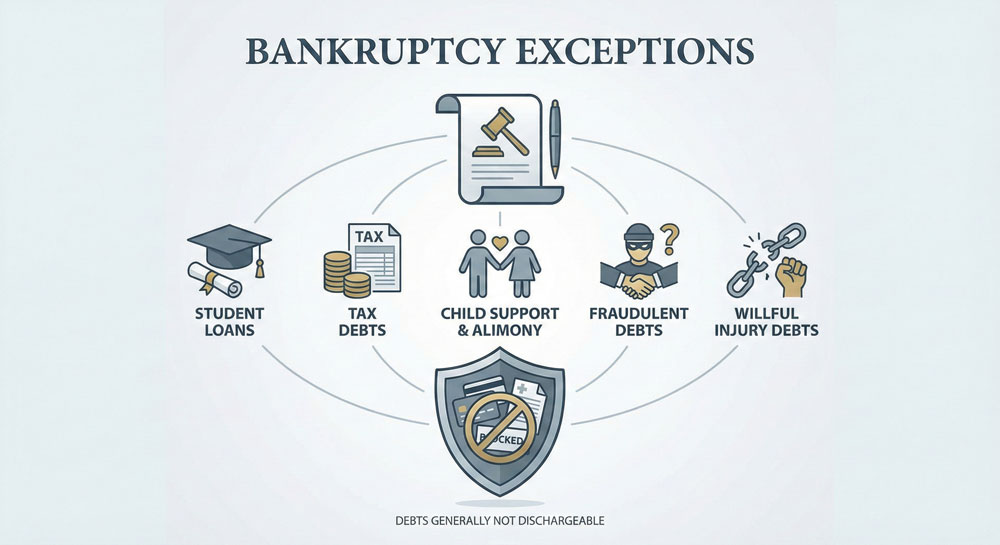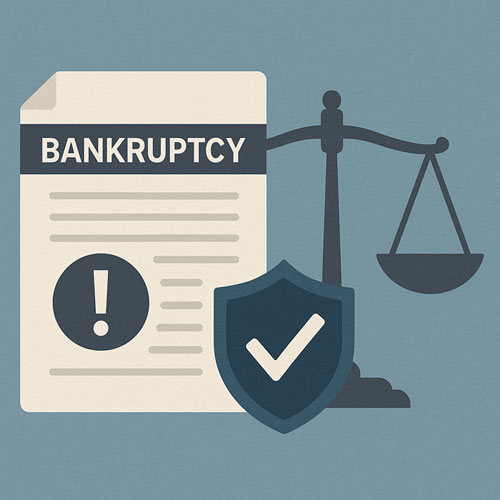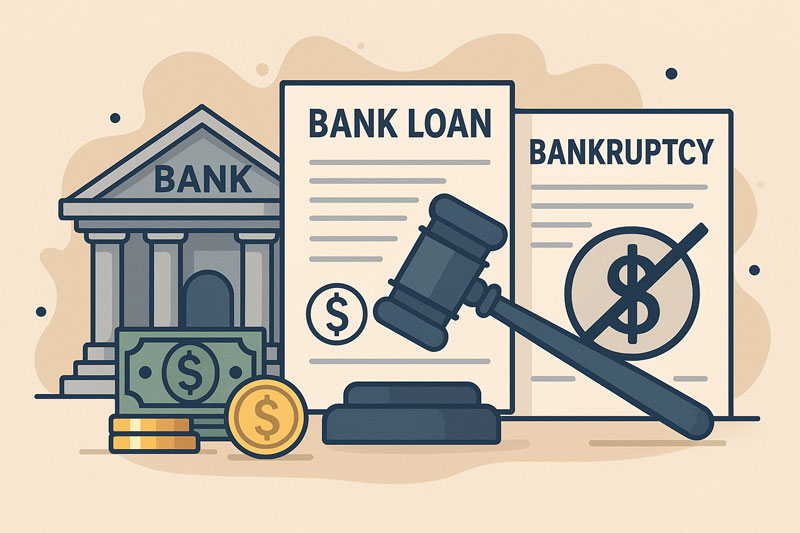Self-employment, Bankruptcy & Proof Of Income
 If you’re self-employed and considering bankruptcy, your experience in the bankruptcy process will be different than the average person who is an employee. One of the biggest differences you will experience is in how you provide proof of income.
If you’re self-employed and considering bankruptcy, your experience in the bankruptcy process will be different than the average person who is an employee. One of the biggest differences you will experience is in how you provide proof of income.
Income Verification
If you’re working as an employee, providing paystubs is the standard way to verify that your income is what you say it is. But obviously this isn’t possible for most self-employed people. If you’re self-employed and filing bankruptcy you will need to provide proof of income for the six month period prior to your filing. While it should be easy to provide a profit and loss statement, that won’t be enough to satisfy your income verification needs, you will also need to provide documentation.
Supporting Documents
Profit & Loss Statements – Many businesses keep a record of their income and expenses using software, such as Quick Books. If your business maintains such records, getting documentation should be easy, we would just have you print out a profit and loss statement for the relevant 6-month period. If your business does not have up-to-date records, or your records are not accurate, the process will be more difficult. The bankruptcy court and bankruptcy trustee usually requires that we provide monthly profit and loss forms to document your business income.
Check stubs – While many self-employed people don’t work in a 9-to-5 environment, many do on a contractual basis, so getting check stubs may be easy. If you fall into that category, gather your check stubs so that they’re available for your bankruptcy attorney.
Invoices – If you invoice clients, those invoices can serve as proof of income. But remember, you only want to document the money you actually received. No need to provide invoices for money you never received from the client.
Bank statements – Providing bank statements is another way to document your income, especially if you have a mostly cash business. Bank statements are an essential part of completing the profit and loss forms required by the bankruptcy trustees and court.
Check copies – Even if you don’t keep copies of client’s checks, the bank can provide copies for you. But you’ll want to contact the bank early, since getting copies of checks can sometimes take at least a week. Getting copies of checks typically is not necessary, but you should keep this in mind just in case the bankruptcy court or bankruptcy trustee asks for back-up documentation.
Tax returns – If your last tax return covers the six month period prior to your bankruptcy filing, your Schedule C can be very useful in verifying your income.
Accuracy
It is absolutely important that your income statements are accurate since the bankruptcy court will determine your eligibility for Chapter 7 bankruptcy based on those numbers. Also, if you file Chapter 13 bankruptcy, your income will determine how much of your debts will be repaid. Providing inaccurate income information could skew the results and make it appear that you’re attempting to defraud the bankruptcy system. To avoid inaccuracies, you should begin tracking your income as soon as you decide that bankruptcy may be a serious option.
To ensure that your income statement is accurate, track your income, gather documents, and provide a realistic account of your finances to your attorney. To learn more about how being self-employed may impact your bankruptcy case, talk to us today.
Categorized in: Chapter 7, Filing Bankruptcy



